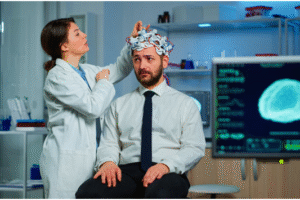In recent years, the importance of comprehensive women’s care has gained recognition not only for addressing physical health but also for its significant role in mental well-being. The connection between mental health and comprehensive women’s care is a topic of growing importance, as it emphasizes the holistic approach needed to ensure women lead healthy, fulfilling lives. In this article, we’ll explore the intricate relationship between mental health and comprehensive women’s care in seven key points.
Hormonal Changes And Emotional Well-Being
From puberty to menopause, hormones are crucial to a woman’s existence. Fluctuations in hormone levels can lead to mood swings, anxiety, and depression. Comprehensive women’s care acknowledges these hormonal changes and provides support through therapies, lifestyle adjustments, or medications to alleviate emotional distress. This proactive approach helps women manage their mental health alongside their physical well-being.
Stress Management And Coping Strategies
Many stressors associated with modern living are related to work and family obligations as well as societal expectations. The goal of comprehensive women’s care is to provide women with coping mechanisms and efficient stress management techniques. This treatment may include counseling, therapy, or support groups, which give women the skills they need to deal with life’s obstacles and preserve mental stability.
Prenatal And Postpartum Mental Health
Two major life events that might have an impact on a woman’s mental health are becoming pregnant and giving birth. Comprehensive women’s care recognizes the heightened emotional vulnerability during these periods. It emphasizes regular prenatal mental health assessments, ensuring that expectant mothers receive appropriate support and guidance to address any issues. Postpartum care extends this support, addressing the mental well-being of new mothers to prevent or manage conditions like postpartum depression.
Gynecological And Reprod™uctive Health
Gynecological conditions such as endometriosis, polycystic ovary syndrome (PCOS), and fibroids can cause chronic pain and discomfort, affecting a woman’s mental health. Comprehensive care provides not only medical treatments but also psychological support to help women cope with the emotional challenges that accompany these conditions. By addressing both physical and mental aspects, women can experience a better quality of life.
Body Image And Self-Esteem
Society frequently holds women to unattainable standards when it comes to body image. The pressures from society can have a detrimental effect on one’s mind and self-worth. Body-positive counseling and support are part of comprehensive women’s care, which aims to assist women in forming good self-images and high self-esteem. This gives women the confidence to love their bodies and put their general well-being before meeting social norms.
Sexual Health And Intimacy
An essential component of a woman’s total well-being is her sexual health. Issues like sexual dysfunction or sexual trauma can have profound effects on mental health. Comprehensive women’s care includes open discussions about sexual health, and providing a safe space for women to address concerns or seek therapy when needed. This holistic approach ensures that women’s emotional and psychological aspects of sexual well-being are considered alongside physical health.
Prevention And Early Intervention
Comprehensive women’s care doesn’t wait for mental health problems to reach a crisis point. It emphasizes preventive measures and early intervention. Routine check-ups include mental health assessments to detect signs of distress or mental health disorders early on. This proactive approach allows healthcare providers to tailor care plans to address both physical and emotional health, ultimately leading to better outcomes.
Conclusion
The connection between mental health and comprehensive women’s care is undeniable. A woman’s well-being is not solely determined by her physical health; her mental and emotional health are equally important. By addressing hormonal changes, stress management, prenatal and postpartum mental health, gynecological and reproductive health, body image, sexual health, and prevention, comprehensive women’s care ensures that women receive holistic support.















